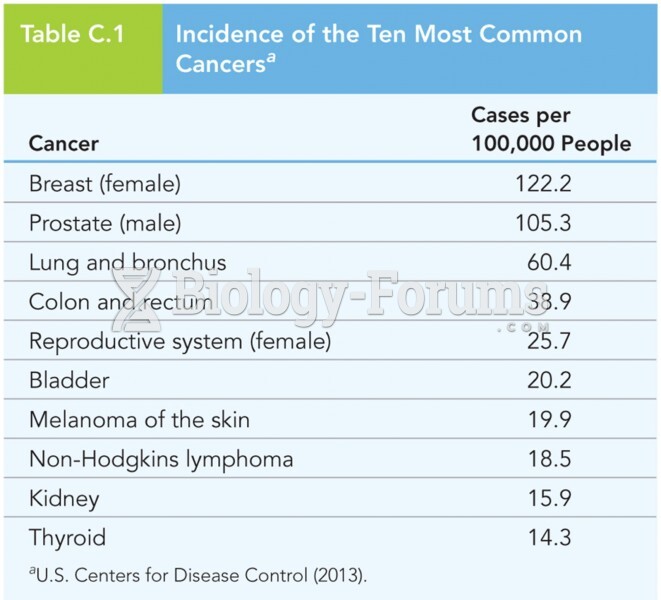|
|
|
Computer programs are available that crosscheck a new drug's possible trade name with all other trade names currently available. These programs detect dangerous similarities between names and alert the manufacturer of the drug.
Bacteria have been found alive in a lake buried one half mile under ice in Antarctica.
Approximately 500,000 babies are born each year in the United States to teenage mothers.
For pediatric patients, intravenous fluids are the most commonly cited products involved in medication errors that are reported to the USP.
A serious new warning has been established for pregnant women against taking ACE inhibitors during pregnancy. In the study, the risk of major birth defects in children whose mothers took ACE inhibitors during the first trimester was nearly three times higher than in children whose mothers didn't take ACE inhibitors. Physicians can prescribe alternative medications for pregnant women who have symptoms of high blood pressure.







